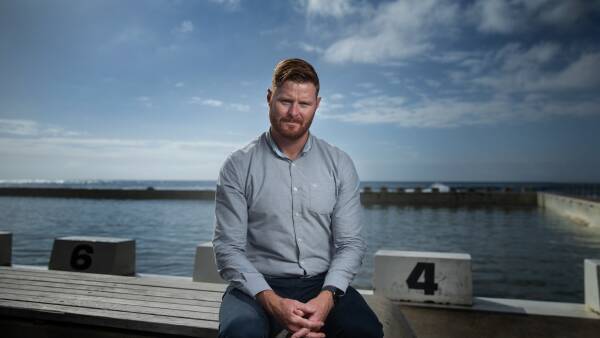
A research team from the University of Newcastle has received an $18.7 million federal grant aimed at developing innovative treatments for high-grade gliomas, some of the most aggressive forms of brain cancer. This funding, which comes from the Medical Research Future Fund (MRFF) under the Frontier Health and Medical Research initiative, will support efforts to improve the outcomes for the more than 2,000 Australians diagnosed annually with these deadly cancers.
Professor Matt Dun, who leads the research team, draws inspiration from Neil Armstrong, the first human to walk on the moon. He reflects on the lesser-known tragedy of Armstrong’s family, as his daughter, Karen “Muffie” Armstrong, succumbed to diffuse intrinsic pontine glioma (DIPG) in 1962 at the age of two. This personal connection resonates with Professor Dun, whose daughter Josephine was diagnosed with DIPG in 2018. She was the first child globally to receive a new therapy called paxalisib, which managed to slow her tumor’s growth at an advanced stage, extending her life by an additional year before her passing in December 2019.
Professor Dun likens his mission to “illuminating the dark side of the moon,” emphasizing the need for urgent action in brain cancer research despite significant advancements in other areas of medicine. He stated, “This grant helps bring this into focus. It backs the science, urgency, and collective determination to make a difference.”
Breakthrough Research and Collaborative Efforts
The funding will not only benefit the University of Newcastle but also support research at institutions such as UNSW Sydney, the Children’s Cancer Institute, and the University of Queensland. Professor Dun’s team has identified critical genes that contribute to the survival of DIPG tumors. They are working on drug combinations designed to target these tumors, which often infiltrate normal brain structures, making surgical removal difficult.
“The high-grade glioma brain tumors grow diffusely,” Professor Dun explained. “They don’t grow as a single mass; they infiltrate the brain and hijack its energy.” This complexity presents a significant challenge, as surgeons cannot completely remove the tumors without risking further growth from remaining diffuse fibers.
One of the promising drugs developed by Professor Dun’s team has recently received accelerated approval from the U.S. Food and Drug Administration. “If we can stop the diffuse growth of tumors with a drug, we can enhance the effectiveness of radiotherapy and ultimately help patients live longer,” he noted.
Aiming for Clinical Trials and Future Innovations
The grant represents a pivotal moment in the search for effective treatments for high-grade gliomas. Professor Dun aims to bring one of the new therapies to clinical trials within the next five years. He believes that continued research will lead to significant breakthroughs, transforming brain tumors from uniformly lethal conditions into manageable diseases.
“With advances in drug development and more precise radiation methods, we are poised for a giant leap forward for patients,” he stated. The collaboration with national and international experts will further ensure the safety and efficacy of these new therapies.
As the Newcastle-led team embarks on this ambitious journey, their work stands as a testament to the resilience of families affected by brain cancer and the ongoing quest for effective treatments. The hope is not only to illuminate the challenges of this field but also to bring light to the lives of those impacted by these devastating diagnoses.







